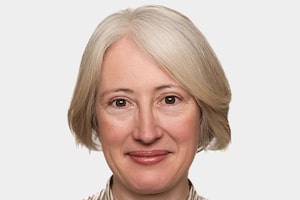Tampa Bay Lightning left wing Ryan Malone, right, flies through the air after getting tripped by Pittsburgh Penguins left wing Mike Rupp (17) in front of Penguins goaltender Marc-Andre Fleury (29) during the third period of an NHL hockey game Thursday, March 31, 2011 in Tampa, Fla. Rupp drew a two-minute penalty for tripping.Chris O'Meara/The Associated Press
Scorecasting is the latest book to use the Freakonomics recipe for publishing success: take one University of Chicago economist, one journalist, and use economics to prove that conventional wisdom is wrong.
Conventional wisdom, according to Scorecasting authors Tobias Moskowitz and Jon Wertheim, says teams win at home because of crowd support, the rigors of travel, or because they can take advantage of unique home characteristics. Moskowitz and Wertheim attempt to demolish that conventional wisdom, with some success. For example, they test the rigors of travel explanation by studying cross-town match ups, such as the Islanders versus the Rangers. Even in these games, the home team is more likely to win.
Then Moskowitz and Wertheim introduce the heroine of their story, a diligent Spanish grandmother, whose careful note keeping discovered a pattern all the experts had missed: European soccer referees are biased in favour of the home team.
The authors' best evidence comes from baseball and soccer. When it comes to hockey, they are far from convincing. They claim: "Home teams in hockey get 20 per cent fewer penalties called on them and receive fewer minutes in the box per penalty."
They claim that the difference is driven by refereeing bias: "We looked at more ambiguous calls -- holding, hooking, cross-checking, boarding, tripping -- and found that these penalties in particular went the home team's way. Less ambiguous calls such as too many men on the ice, illegal equipment, delay of game from sending the puck into the stands and fighting had much less home team bias."
The problem with Moskowitz and Wertheim's analysis is that they have forgotten the number one principle of economics: people aren't stupid.
Taking a penalty is a calculated risk. The other team has the puck and looks likely to score. When it's not possible to get possession with a nice clean check, a trip or a hook is one way of breaking up the play. Even if it leads to a penalty, it may be worthwhile.
But why would the away team be more likely to risk taking penalties?
Here I introduce my own unlikely hero: a hockey-mad economics undergraduate at James Madison University called Ben Leard. For the 2007-08 NHL season, he recorded every aspect of game play - possessions, that is, face-offs won and take-aways, shots on goal, powerplay minutes, and so on. Then, together with his professor Joanne Doyle, he set out to track down the source of home ice advantage.
Their findings, forthcoming in the Journal of Sports Economics, agree with the Scorecasting results in one respect. Home teams do have more powerplay opportunities, and this explains part of the home ice advantage. But the question is, why does the home team have more powerplays? Is it biased refereeing, or is something else going on?
Leard noticed something else different about home teams: they won more face-offs. That's because NHL rule 76.4 gives the home team a face-off advantage: "The visiting player shall place his stick within the designated white area first followed immediately by the home player." More face-off wins translate into more possessions, which then generate more scoring opportunities. Doyle and Leard show that this face-off advantage makes a significant contribution to home ice advantage.
Yet face-off advantage also explains part of the home team's powerplay advantage. Because the home team is more likely to be in possession of the puck, the away team is more likely to be holding, hooking, cross-checking - in other words, risking a penalty in order to get possession. Recall that these were the types of penalties that Moskowitz and Wertheim found went the home team's way, not calls for fighting or illegal equipment, things that have nothing to do with puck possession.
Leard and Doyle's findings do not prove that NHL referees are neutral. But they show that even smart people can end up overstating their case if they forget to take account of people's incentives.
Frances Woolley is a professor of economics at Carleton University
Follow Economy Lab on twitter
 Frances Woolley
Frances Woolley